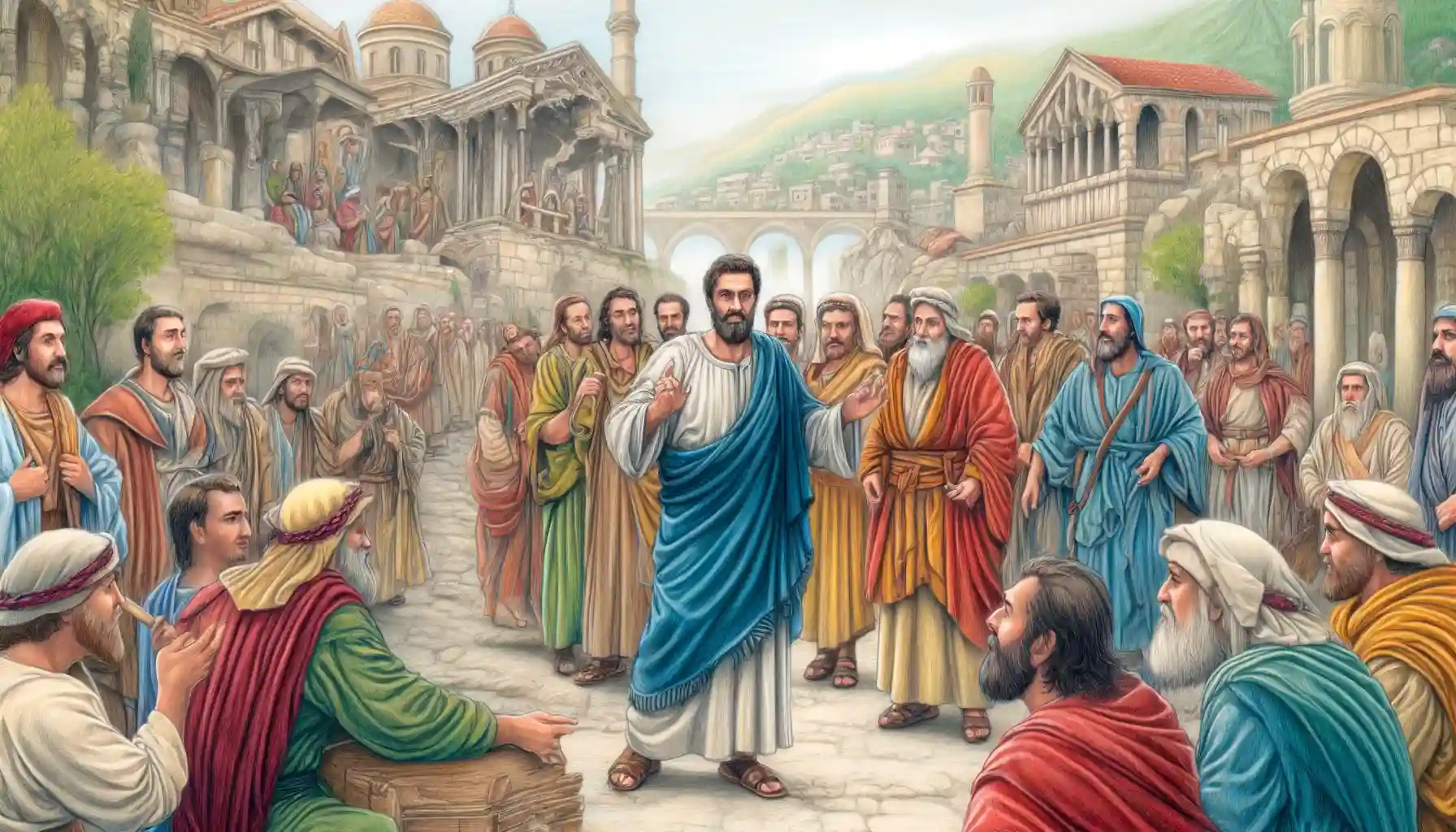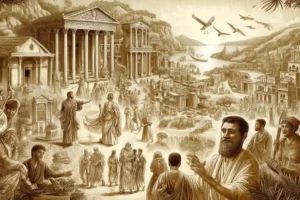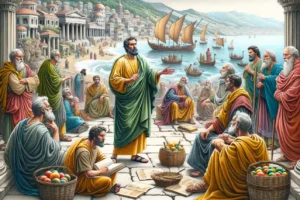
Paul’s First Missionary Journey: Spreading the Gospel
Paul’s first missionary journey was a significant venture in the spread of early Christianity, marked by travel, preaching, and the establishment of new churches.
- Companions: Barnabas and John Mark.
- Starting Point: Antioch in Syria.
- Key Locations: Cyprus, Pisidian Antioch, Iconium, Lystra, and Derbe.
- Opposition: Encountered significant resistance and persecution.
- Miracles: Performed miraculous healings, including healing a lame man in Lystra.
- Message: Preached the Gospel to both Jews and Gentiles.
- Scriptural Reference: Acts 13-14.
Paul’s first missionary journey, undertaken with Barnabas and later joined by John Mark, represents a foundational moment in the expansion of early Christianity. This journey, detailed in Acts 13-14, illustrates the strategic spread of the Gospel to both Jewish and Gentile audiences across the Roman Empire.
Departure from Antioch
The journey began in Antioch, a major center of early Christianity. The church in Antioch, guided by the Holy Spirit, commissioned Paul and Barnabas for their mission (Acts 13:1-3). This commissioning signifies the church’s active role in sending missionaries to spread the faith.
Cyprus: The First Stop
Paul and Barnabas first traveled to Cyprus, Barnabas’ homeland. They preached in the synagogues of Salamis and then moved across the island to Paphos (Acts 13:4-6). In Paphos, they encountered the Roman proconsul, Sergius Paulus, who was interested in their message. Here, Paul confronted Elymas the sorcerer, who opposed their teaching. Paul, filled with the Holy Spirit, struck Elymas blind, a miracle that led to Sergius Paulus’ conversion (Acts 13:7-12). This event highlighted the power of God over falsehood and marked the first recorded instance of a Roman official converting to Christianity.
Pisidian Antioch: Preaching and Persecution
From Cyprus, Paul and Barnabas sailed to Perga in Pamphylia, where John Mark departed from them (Acts 13:13). They continued to Pisidian Antioch, where Paul delivered a powerful sermon in the synagogue, outlining Israel’s history and proclaiming Jesus as the fulfillment of God’s promises (Acts 13:16-41). Many Jews and God-fearing Gentiles embraced the message, but Jewish leaders, jealous of the apostles’ success, stirred up persecution and expelled them from the region (Acts 13:44-50). Despite the opposition, the Gentile converts in Pisidian Antioch were filled with joy and the Holy Spirit.
Iconium: Division and Threats
In Iconium, Paul and Barnabas preached in the synagogue with great success, leading to the conversion of a large number of Jews and Gentiles (Acts 14:1). However, their success again provoked opposition, resulting in a divided city. The apostles faced threats of stoning and fled to Lystra and Derbe (Acts 14:2-6).
Lystra: Healing and Hostility
In Lystra, Paul healed a man crippled from birth, which led the people to mistakenly worship Paul and Barnabas as gods, calling them Hermes and Zeus (Acts 14:8-12). Paul and Barnabas vehemently rejected the idolatry and redirected the crowd to worship the living God (Acts 14:14-18). However, Jews from Antioch and Iconium arrived, inciting the crowd against them. Paul was stoned and left for dead, but he miraculously survived and continued preaching the Gospel (Acts 14:19-20).
Derbe: Making Disciples
In Derbe, Paul and Barnabas made many disciples and then retraced their steps, strengthening the new believers and appointing elders in each church (Acts 14:21-23). Their return to the cities where they faced persecution underscores their commitment to nurturing the fledgling Christian communities.
Return to Antioch
The journey concluded with a return to Antioch, where Paul and Barnabas reported all that God had done through them, particularly how He had opened the door of faith to the Gentiles (Acts 14:26-27). This report reinforced the inclusivity of the Gospel and the growing acceptance of Gentiles into the Christian faith.
Theological Insights
Several key theological themes emerge from Paul’s first missionary journey:
- Inclusivity of the Gospel: The journey emphasized that the Gospel was for both Jews and Gentiles, breaking down cultural and religious barriers.
- Divine Empowerment: Miracles performed by Paul validated the message of the Gospel and demonstrated God’s power over opposition.
- Perseverance in Faith: Despite significant opposition and persecution, Paul and Barnabas remained steadfast in their mission, exemplifying courage and dedication.
- Church Planting: The establishment and strengthening of new churches highlighted the importance of structured communities for sustaining the Christian faith.
Conclusion
Paul’s first missionary journey set a precedent for future missions and established crucial principles for evangelism, church planting, and discipleship. The journey underscored the transformative power of the Gospel, the necessity of perseverance amidst opposition, and the inclusivity of God’s salvation plan. Paul’s efforts laid a strong foundation for the spread of Christianity throughout the Roman Empire and beyond.



